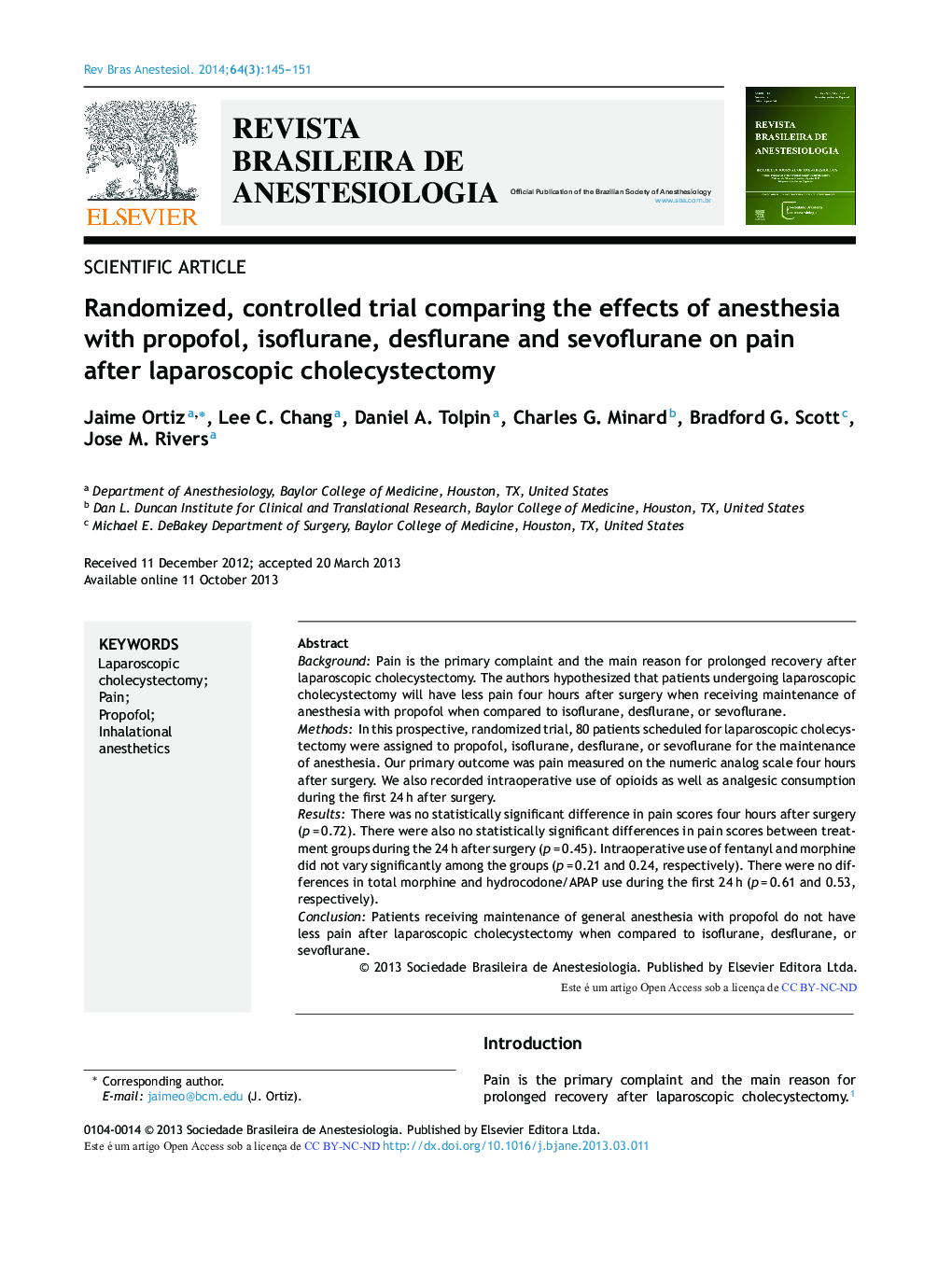| Article ID | Journal | Published Year | Pages | File Type |
|---|---|---|---|---|
| 2750363 | Brazilian Journal of Anesthesiology (English Edition) | 2014 | 7 Pages |
BackgroundPain is the primary complaint and the main reason for prolonged recovery after laparoscopic cholecystectomy. The authors hypothesized that patients undergoing laparoscopic cholecystectomy will have less pain four hours after surgery when receiving maintenance of anesthesia with propofol when compared to isoflurane, desflurane, or sevoflurane.MethodsIn this prospective, randomized trial, 80 patients scheduled for laparoscopic cholecystectomy were assigned to propofol, isoflurane, desflurane, or sevoflurane for the maintenance of anesthesia. Our primary outcome was pain measured on the numeric analog scale four hours after surgery. We also recorded intraoperative use of opioids as well as analgesic consumption during the first 24 h after surgery.ResultsThere was no statistically significant difference in pain scores four hours after surgery (p = 0.72). There were also no statistically significant differences in pain scores between treatment groups during the 24 h after surgery (p = 0.45). Intraoperative use of fentanyl and morphine did not vary significantly among the groups (p = 0.21 and 0.24, respectively). There were no differences in total morphine and hydrocodone/APAP use during the first 24 h (p = 0.61 and 0.53, respectively).ConclusionPatients receiving maintenance of general anesthesia with propofol do not have less pain after laparoscopic cholecystectomy when compared to isoflurane, desflurane, or sevoflurane.
